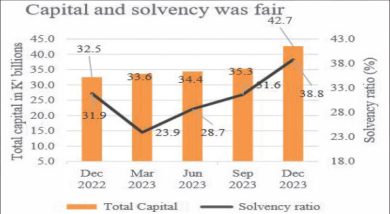Pests to affect cotton output in Balaka
The Balaka Cotton Growers Association chairperson Steve Dodoma attributed the massive attacks of pests on the crop to inadequate insecticides distributed under the K1.6 billion cotton fund established last year.
He cited African boreworm, red boreworm and aphids as some of the pests that have heavily attacked the crop.
“The distributed insecticides were not enough. Imagine, a farmer with a two-hectare piece of land was being given the chemicals equivalent to one hectare. This meant that the crop was not sprayed with the required amount of chemicals,†said Dodoma, who heads a 300-member group.
Giving their expectation to Business News on Friday in view of the government initiative. He, however, said largely the crop’s outlook looks promising adding that that some growers will still harvest more than last year.
“We have a big crop this year and we expect the price to be favourable as well taking into account the quality of the crop. We want this year to be a continuation of last year in which the prices were better than expected,†he said.
Buoyed by good prices last year that peaked at as high as K200 per kilogramme, government allocated K1.6 billion in the 2011/12 budget to support cotton growers produce high quality lint for domestic and export markets.
The move was also aimed at increasing the number of growers and hectarage compared to the previous years.
The money was disbursed as loans to smallholder growers to increase the hectarage to 200 000 which government hoped would raise over $300 million (K50.4 billion) in foreign exchange to boost the much depleted foreign currency reserves, at the end of the year.
Last week, the Cotton Development Trust (CDT) chairperson Patrick Khembo said the desire was to increase Malawi’s cotton output to 250 000 tones but noted drought and less insecticides distributed to the growers may affect this.
CDT, a public-private sector partnership institution, however, feared the huge output for the crop could have a potential effect on the prices.
This season, the Ministry of Agriculture, Irrigation and Water Development has set minimum farm gate prices for the crop at K78 per kilogramme for grade A, K3 up from last year’s K75 per kg. Grade B is now put at K63 per kilogramme, K7 down from last year’s K70 per kilogramme.




